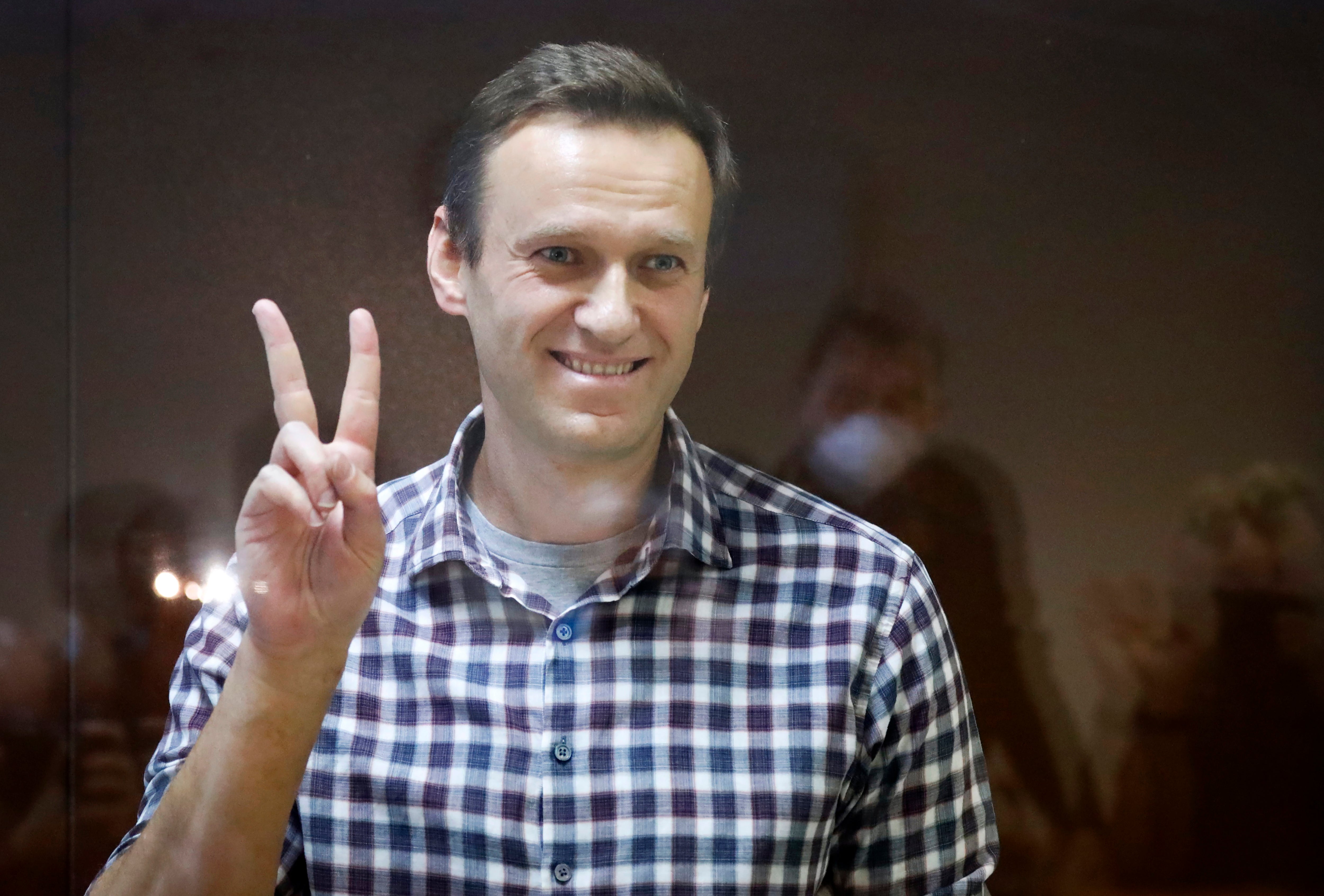Moscow court considers opposition leader Navalny's appeal
A Moscow court is considering Russian opposition leader Alexei Navalny’s appeal against his prison sentence

A Moscow court on Saturday considered Russian opposition leader Alexei Navalny s appeal against his prison sentence, as the country faced a top European rights court s order to free the Kremlin's most prominent foe.
The Russian government has rebuffed the European Court of Human Rights' demand to free Navalny immediately, describing its ruling on Tuesday as unlawful and “inadmissible” meddling in Russia’s affairs.
The Moscow City Court was considering Saturday Navalny's appeal against a lower court ruling earlier this month that sentenced him to two years and eight months in prison for violating terms of his probation while recuperating in Germany. The sentence stems from a 2014 embezzlement conviction that Navalny has rejected as fabricated and the European court has ruled to be unlawful.
A ruling is expected later Saturday. After that, Navalny will also face proceedings in a separate case on charges of defaming a World War II veteran. Navalny, who called the 94-year-old veteran and other people featured in a pro-Kremlin video “corrupt stooges,” “people without conscience” and “traitors,” has rejected the slander charges and described them as part of official efforts to disparage him.
Navalny, 44, an anti-corruption crusader and President Vladimir Putin’s most vocal critic, was arrested on Jan.17 upon returning from Germany, where he spent five months recovering from a nerve-agent poisoning that he blames on the Kremlin. Russian authorities have rejected the accusation.
Navalny’s arrest and imprisonment have fueled a huge wave of protests across Russia. Authorities responded with a sweeping crackdown, detaining about 11,000 people, many of whom were fined or given jail terms ranging from seven to 15 days.
Russia has rejected Western criticism of Navalny’s arrest and the crackdown on demonstrations as meddling in its internal affairs.
In Tuesday’s ruling, the ECHR ordered the Russian government to release Navalny, citing “the nature and extent of risk to the applicant’s life.” The Strasbourg-based court noted that Navalny has contested Russian authorities’ argument that they had taken sufficient measures to safeguard his life and well-being in custody following the nerve agent attack.
In the past, Moscow has abided by the ECHR’s rulings awarding compensations to Russian citizens who have contested verdicts in Russian courts, but it never faced a demand by the European court to set a convict free.
In a sign of its long-held annoyance with the Strasbourg court’s verdicts, Russia last year adopted a constitutional amendment declaring the priority of national legislation over international law. Russian authorities might now use that provision to reject the ECHR’s ruling.